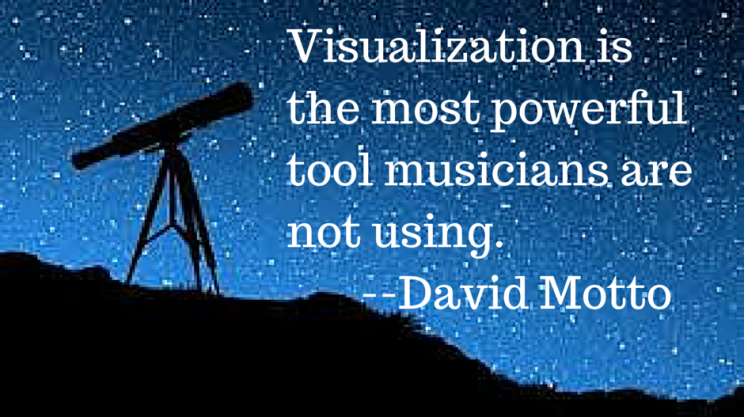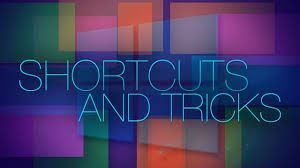
At first, it seemed like science fiction. Turns out, it’s actual science.
Researchers took brain scans of people as they engaged in an activity. Then, they took scans of these same people merely visualizing doing the same activity using mental imagery.
When people do the activity, specific areas of the brain light up on the scan. If people merely visualize doing the activity, the exact same areas of the brain light up.
Just think of the ramifications of this research for musicians.

If the brain doesn’t know the difference between physically engaging in an activity and only mentally engaging in that activity, then visualizations can help improve your performances just like actual practicing does.
This is one of the most mind-boggling ideas that has come out of scientific research in neurophysiology and deliberate practice. It’s an extraordinarily valuable piece of information for performers, athletes, and other people who must be at their best in high-stress environments.
So, how powerful is visualization?
Unfortunately, it can’t replace your practicing. Skill mastery is just as important as ever. You still need to play all those scales, arpeggios, and rhythm exercises. Breaking down songs into small parts and mastering each part is crucial. Playing slowly and building muscle memory is a must. None of this work can be avoided.
But, imagine how you can improve your results by adding visualizations to your normal practice routines. The research clearly implies three things:
1. You Can Perform Better
Creating compelling mental imagery will help your performances. By going through a performance in your mind ahead of time, you can help take control of the outcome of the performance.
2. Visualization Should Be Normal
Using vivid mental imagery when preparing for a high-stakes situation can be a regular part of your training and practicing regime. Don’t think of visualization as a special tool. Make it part of your daily activities.
3. Not Using Visualization Could Hurt You
You might be hurting your performances if you don’t take advantage of this powerful tool. When you’re in front of an audience, surprising emotions can come up – seemingly out of nowhere. If these emotions catch you off guard, your performance could be ruined. You would be a lot better off dealing with the issues that make you nervous during your visualizations.
As musicians, we have a special use for using mental imagery – dealing with that one, extremely small section of music that you’re scared of.
Yes, scared.
You know what I’m talking about. That one note, lick, or transition that seems to haunt you. The whole rest of the song is just fine, and you’re still struggling with that one little detail.
Seems to me that visualization is the perfect strategy to employ to calm your emotions, strengthen your muscle memory, and build your confidence. Creating positive mental imagery will help you deal with the very part of your performance you’re most worried about.
Why isn’t everyone using visualization? Visualization just may be the most powerful tool that musicians are not using.



 1. Listen, Listen, Listen
1. Listen, Listen, Listen